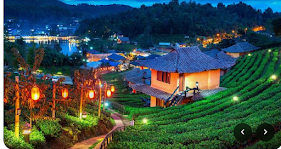Todays Writer- Victor Hugo
.jpg) Victor Hugo was a renowned
French writer, poet, and playwright, best known for his novels "Les
Misérables" and "The Hunchback of Notre Dame." He was born on
February 26, 1802, in Besançon, France, and he died on May 22, 1885, in Paris,
France. Hugo was a central figure in the Romantic movement in literature and
was highly influential in French literary circles during the 19th century.
Victor Hugo was a renowned
French writer, poet, and playwright, best known for his novels "Les
Misérables" and "The Hunchback of Notre Dame." He was born on
February 26, 1802, in Besançon, France, and he died on May 22, 1885, in Paris,
France. Hugo was a central figure in the Romantic movement in literature and
was highly influential in French literary circles during the 19th century.Some key points about Victor Hugo and his works include:
"Les Misérables"
(1862): Considered one of the greatest novels of the 19th century, "Les
Misérables" is a sprawling epic that follows the lives of several
characters, including the ex-convict Jean Valjean, the tragic Fantine, and the revolutionary
Marius. The novel explores themes of justice, redemption, and the human
condition against the backdrop of post-Napoleonic France.
"The Hunchback of
Notre-Dame" (1831): This novel, set in medieval Paris, tells the story of
Quasimodo, the deformed bell-ringer of Notre-Dame Cathedral, and his love for
the beautiful gypsy Esmeralda. "The Hunchback of Notre Dame" is celebrated
for its vivid depiction of Parisian life and its exploration of themes such as
social injustice and the power of love.
Poetry: Hugo was also a
prolific poet, known for collections such as "Les Contemplations"
(1856) and "La Légende des siècles" (1859–1883). His poetry often
dealt with themes of love, nature, and the human spirit.
Political Activism: Hugo
was actively involved in politics throughout his life and held strong
Republican and liberal beliefs. He was a vocal critic of social injustice and
campaigned for causes such as abolitionism and the rights of the poor and
oppressed.
Exile: Due to his political
views, Hugo was forced into exile from France for over 20 years during the
reign of Napoleon III. He spent much of this time living in Guernsey, where he
continued to write and remain politically active.
Legacy: Victor Hugo's works
have had a profound and lasting impact on literature and culture. His novels
continue to be widely read and adapted into various forms of media, including
films, television shows, and stage productions. He is also remembered for his
role as a champion of social justice and human rights, making him a celebrated figure in French and world
history
Learn more from: www.en.wikipedia.org, www.humanidades.com,
courtesy:
Wikipedia
MR
🌟👹 🌟👹 🌟👹 🌟👹 🌟👹 🌟👹 🌟👹 🌟👹 🌟👹 🌟👹 🌟👹 🌟👹



Comments
Post a Comment